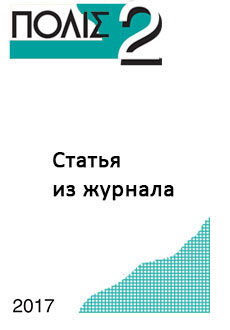Online shop of "Polis. Political Studies" Journal
We in the world, the world in us
Zonova T.V., Raynkhardt R.O. ‘Kissinger Dilemma’ in Transatlantic Trade and Investment Partnership Negotiations: History and Current State of Affairs. – Polis. Political Studies. 2017. No 2. P. 170-182 (In Russ.) .
150 руб.
The article deals with the institutional aspects of the EU-US negotiation process on the Transatlantic Trade and Investment Partnership (TTIP). The starting hypothesis infers that the long-term duration of the negotiations as well as their non-transparency to the general public can be explained by the contents of the agenda or by single countries’ positions, but also by the inconsistency of supranational EU institutions’ actions. The authors cast light upon the inter-ministerial competition and rivalry, which tends to be an internal problem of many national economic diplomacy systems. This problem becomes acute in the process of decision taking and concluding complex trade policy deals to a larger extent than in the routine work of the structures involved. Currently this phenomenon may be witnessed not only on the national but also on the supranational level, especially because of some imperfect coordination of actions between the European Commission and the European External Action Service (EEAS) on TTIP issues. Having been a key point of the transatlantic dialogue since 2013, TTIP has a large prehistory. The authors analyze the main stages of the latter – the Transatlantic Declaration (1990), the New Transatlantic Agenda (1995), the Transatlantic Economic Partnership (1998) and the Transatlantic Economic Council (2007) focusing on the institutional framework of European and American authorities’ interaction as defined by the above agreements. Further, the article examines the ongoing TTIP negotiations with regard to ‘post-Lisbon’ Europe with enhanced authority of the High Representative of the Union for Foreign Affairs and Security Policy and the EEAS established in 2010. Despite the fact that the work of these institutes was aimed at consolidating the EU economic diplomacy system, in the area in question there tend to be two practically non-interacting channels of communication with US counterparts. Moreover, the level European diplomats’ involvement can be considered a rather low one. According to the authors, such situation creates additional obstacles to achieving consensus on the TTIP.
 English
English Русский
Русский

Reviews
There are no reviews yet.